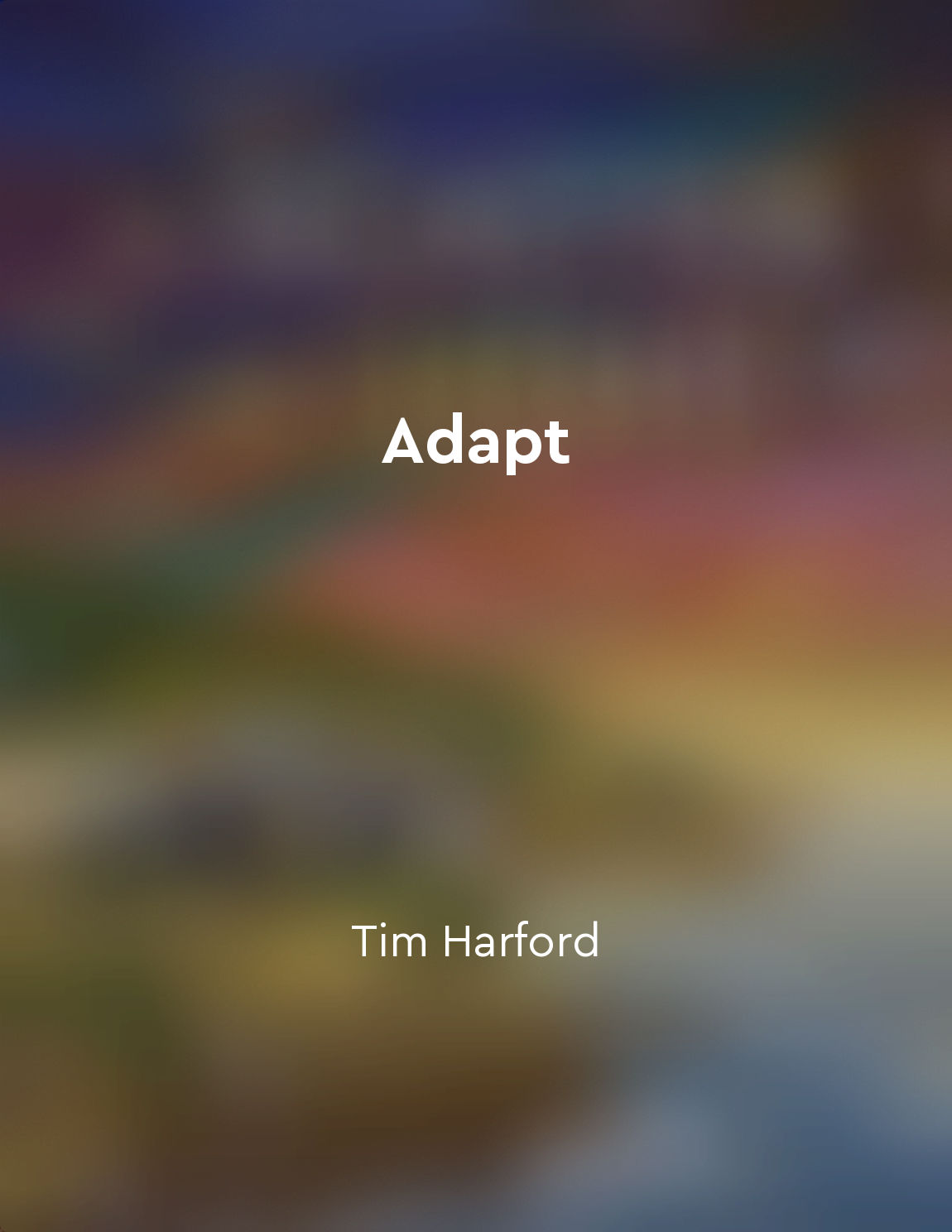Beware of blind spots from "summary" of Adapt by Tim Harford
Tim Harford warns us to be cautious of blind spots in our thinking and decision-making. Blind spots are areas in our understanding where we are missing critical information or overlooking key factors that could influence our choices. These blind spots can lead us to make mistakes, overlook opportunities, or fail to anticipate potential risks. Harford emphasizes the importance of acknowledging the existence of blind spots and actively working to identify and address them. He suggests that by being aware of our limitations and biases, we can better navigate complex situations and make more informed decisions. This requires humility and a willingness to challenge our assumptions and seek out alternative perspectives. One common blind spot that Harford discusses is the tendency to rely too heavily on past experiences or conventional wisdom. While experience can be valuable, it can also limit our ability to see new possibilities or adapt to changing circumstances. By staying open to new information and challenging our preconceived notions, we can avoid falling into the trap of relying on outdated or flawed assumptions. Another blind spot that Harford highlights is the tendency to ignore feedback or data that contradicts our beliefs. This confirmation bias can lead us to dismiss important information that challenges our worldview, preventing us from seeing the full picture. By actively seeking out opposing viewpoints and considering alternative explanations, we can reduce the impact of confirmation bias and make more objective decisions. In order to overcome blind spots, Harford recommends adopting a mindset of continuous learning and adaptation. This involves being open to feedback, willing to revise our opinions in light of new evidence, and embracing uncertainty as a natural part of the decision-making process. By cultivating a sense of curiosity and a willingness to challenge our assumptions, we can develop a more nuanced understanding of the world and make more effective choices.- Harford's message is clear: blind spots are a natural part of the human experience, but by acknowledging their existence and actively working to address them, we can improve our decision-making and adapt more effectively to a complex and uncertain world.


